5 foods for healthy digestion
Reach for these when your digestion is upset.
Updated on September 3, 2024
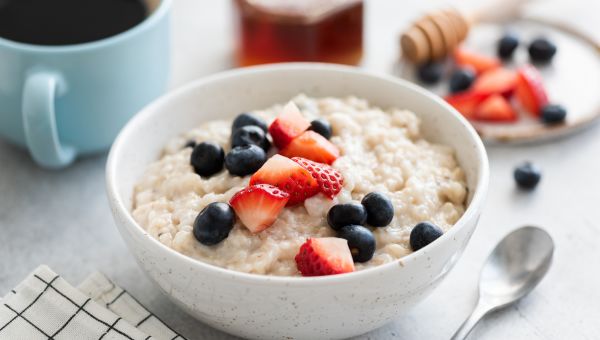
According to the Centers for Disease Control and Prevention (CDC), each year in the United States about 35 million visits are made to healthcare providers (HCPs) because of a diagnosed digestive disease. Many more people deal with upset stomachs, constipation, diarrhea, and other digestion concerns on a regular basis. These issues are often caused by foods people ate—or didn’t eat. If you want to help ease or prevent them, reach for these five foods.
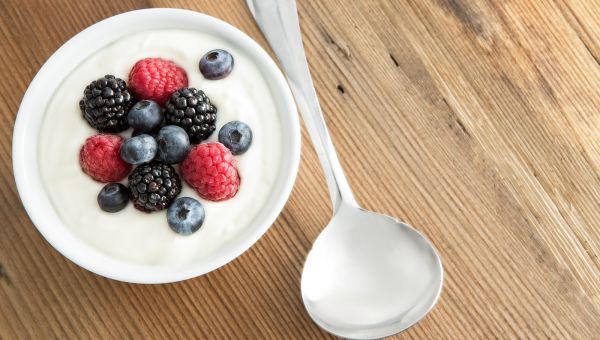
Fermented food
What it has: Probiotics
What to try: Yogurt, sauerkraut, kombucha, and kimchi
Why it works: Fermented foods contain bacteria called probiotics that benefit your gut health. Your gut naturally contains a variety of helpful microbes, and probiotics add more. They may ease diarrhea caused by antibiotics and may alleviate the symptoms of conditions such as irritable bowel syndrome.
Bifidobacterium and Lactobacillus are among the most studied groups of probiotics. One of the species under the Bifidobacterium genus is L. acidophilus, a frequently marketed probiotic that can help restore the microbial environments in your gut and stomach.
Be sure to check the labels of fermented foods and drinks to be sure they list “live and active cultures,” as sometimes heavily processed products no longer contain active cultures.
You can buy more highly concentrated probiotics as dietary supplements, too, but it's important to know that the Food and Drug Administration (FDA) does not regulate probiotic supplements. So the companies that make them are not required to meet any standards for these products.
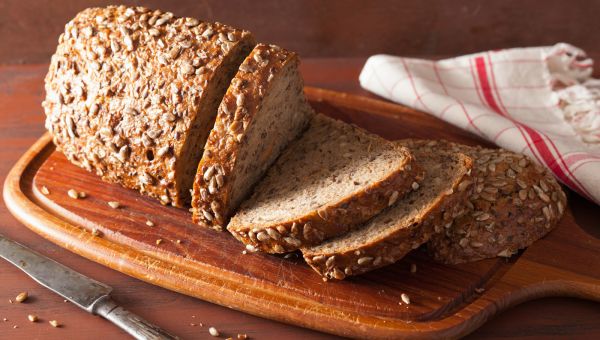
Whole wheat
What it has: Insoluble fiber
What to try: Whole wheat pasta and bread, vegetables like carrots and cauliflower, beans, and berries
Why it works: There’s a reason whole grains are recommended over other types of grains: They’re a great source of insoluble fiber. Insoluble fiber softens the stool, helps your bowels move more regularly, and can both prevent and treat constipation. Getting enough insoluble fiber can also lower your risk for hemorrhoids and diverticulitis, a digestive condition that causes irregular pouches in the large intestine that can become inflamed or infected and cause pain.
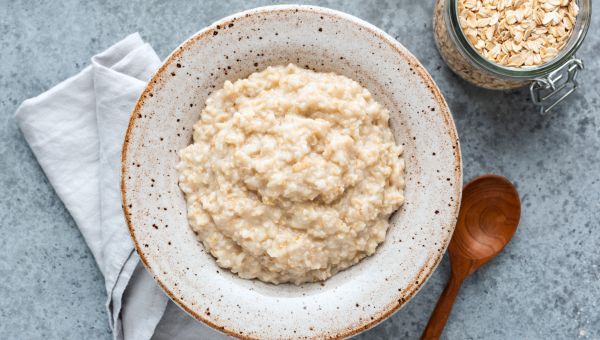
Oats
What it has: Soluble fiber
What to try: Oatmeal (any type, though rolled oats and steel-cut oats may have more nutritional value than instant oatmeal), peas, apples, and citrus fruits
Why it works: Soluble fiber, unlike insoluble fiber, dissolves in water and becomes a material similar to a gel as it goes through your digestive system. When this gel reaches the colon, it provides food for the friendly bacteria in your gut. When your good bacteria flourish, it can help your body lower inflammation and help you digest food. Soluble fiber also helps to lower cholesterol and blood sugar, and it makes it harder to absorb fat.
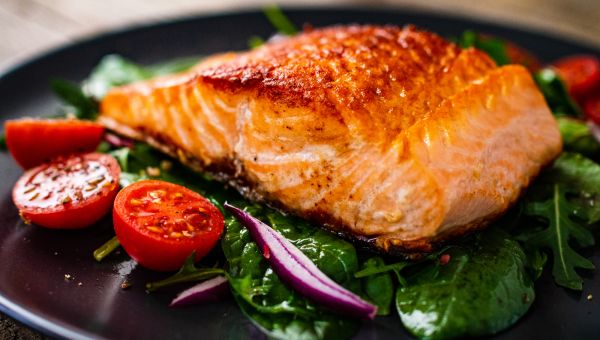
Fatty fish
What it has: Omega-3s
What to try: Salmon, trout, tuna, and mackerel
Why it works:
Fish can be a healthy addition to any diet. It’s packed with protein, and many varieties of fatty fish boast healthy amounts of omega-3 fatty acids. These are believed to guard against cardiovascular disease by reducing triglycerides, slowing the buildup of plaque in the blood vessels, slightly lowering blood pressure, and reducing the risk of irregular heartbeats.
Omega-3 fatty acids have also been linked to lower inflammation. Some studies have linked eating fish to lower risk for certain digestive issues, including inflammatory bowel disease.
Fish is also part of a low FODMAP diet that has been associated with fewer symptoms of irritable bowel syndrome (IBS). This is a digestive condition that can cause bloating, constipation and/or diarrhea. FODMAP stands for “Fermentable Oligosaccharides, Disaccharides, Monosaccharides, And Polyols.” These are carbohydrates that are harder to digest, so they stay longer in your digestive tract and cause symptoms like gas and bloating. Examples are dairy foods with lactose, fruits like apples and pears, vegetables like onions, cauliflower and broccoli, wheat, and beans.
In addition to fish and other lean proteins like chicken, a low FODMAP diet emphasizes:
- Lactose-free dairy, or alternative milks like almond or rice milk
- Fruits like bananas and berries
- Vegetables like carrots and lettuce
- Nuts and seeds
- Different types of grains like oats, rice, corn, and quinoa
To get the nutrients you need and ensure a well-rounded healthy diet, the idea is to limit certain foods that may upset your digestion, but not cut them out entirely.
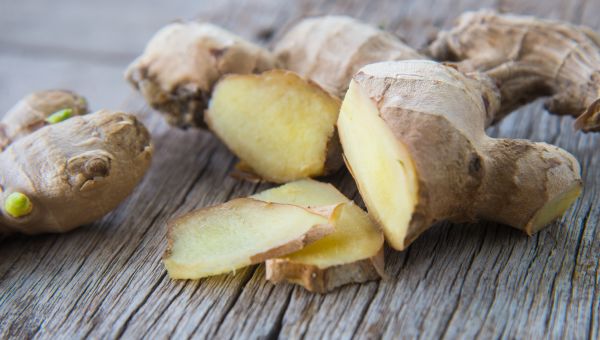
Ginger
What it has: Gingerols and shogaols
What to try: Fresh ginger root tea (slice ginger thinly and steep in boiled water for 10 minutes), pickled ginger, or grated ginger in a savory stir-fry dish
Why it works: You might know ginger as a spicy root that goes great with sushi, but it can alleviate digestive problems, too. Ginger has been shown to reduce nausea and vomiting from pregnancy and chemotherapy. It can also relieve symptoms like gas and bloating, and because it contains antioxidants, it may help protect cells from damage.
A large 2020 systematic review published in the journal Nutrients looked at 109 studies on ginger’s health effects. Researchers found evidence that ginger acts as a digestive enhancer, helping the stomach empty more quickly. This can help the entire digestive system move more smoothly.

Harvard Health Publishing. Try a FODMAPs diet to manage irritable bowel syndrome. March 15, 2022.
Zhao H, Wang M, Peng X, et al. Fish consumption in multiple health outcomes: an umbrella review of meta-analyses of observational and clinical studies. Ann Transl Med. 2023 Feb 15;11(3):152.
Mozaffari H, Daneshzad E, Larijani B, et al. Dietary intake of fish, n-3 polyunsaturated fatty acids, and risk of inflammatory bowel disease: a systematic review and meta-analysis of observational studies. Eur J Nutr. 2020 Feb;59(1):1-17.
Centers for Disease Control and Prevention. Digestive Diseases. Page last reviewed September 14, 2023.
Cleveland Clinic. Probiotics. Page last reviewed October 30, 2023.
National Center for Complementary and Integrative Health. Probiotics: What You Need to Know. Page last updated August 2019.
Cleveland Clinic. What’s the Difference Between Soluble and Insoluble Fiber? Page last updated January 31, 2021.
Atkinson FS, Brand-Miller JC, Foster-Powell K, et al. International tables of glycemic index and glycemic load values 2021: a systematic review. Am J Clin Nutr. 2021 Nov 8;114(5):1625-1632.
Cleveland Clinic. Omega-3 Fatty Acids. Page last reviewed November 17, 2022.
Franchi C, Ardoino I, Bosetti C, et al. Inverse Association between Canned Fish Consumption and Colorectal Cancer Risk: Analysis of Two Large Case-Control Studies. Nutrients. 2022 Apr 16;14(8):1663.
Johns Hopkins Medicine. Ginger Benefits. Page accessed March 23, 2024.
Anh NH, Kim SJ, Long NP, et al. Ginger on Human Health: A Comprehensive Systematic Review of 109 Randomized Controlled Trials. Nutrients. 2020 Jan 6;12(1):157.
More On


video

article

slideshow


video


video
